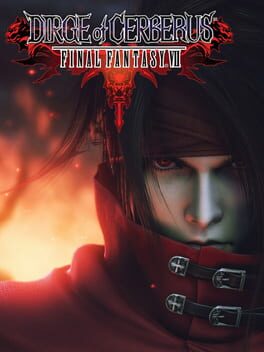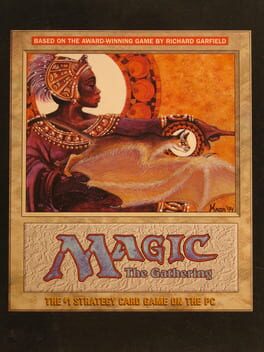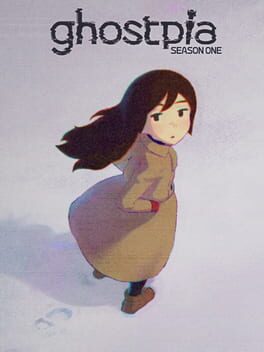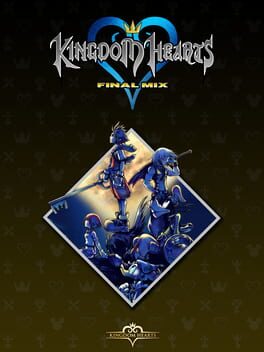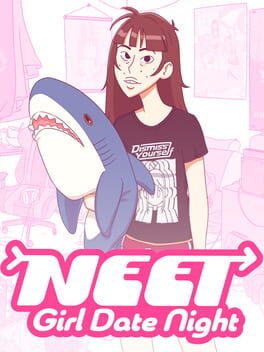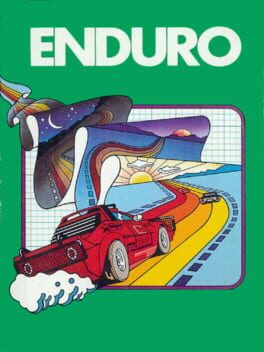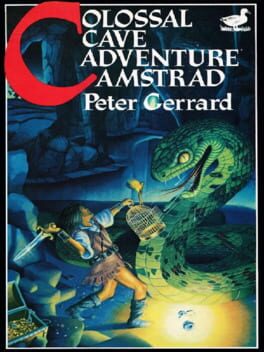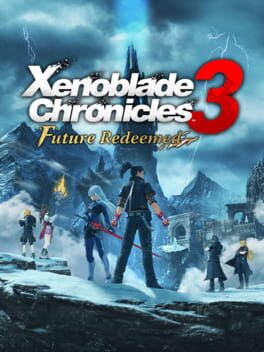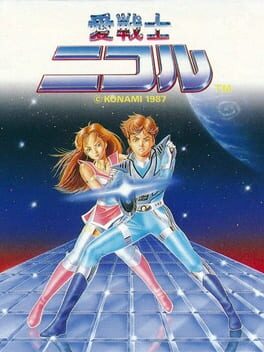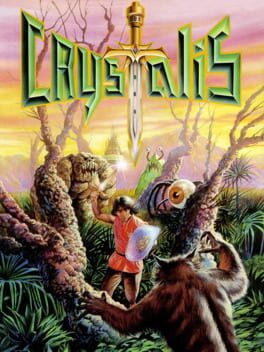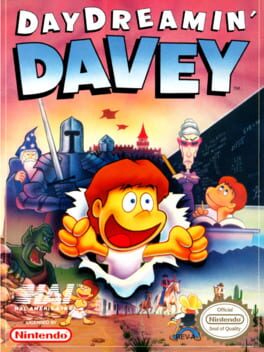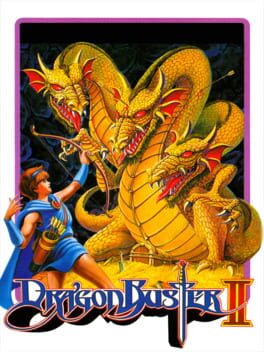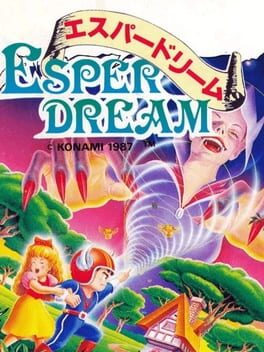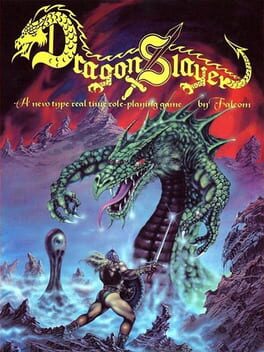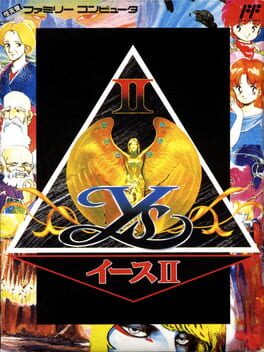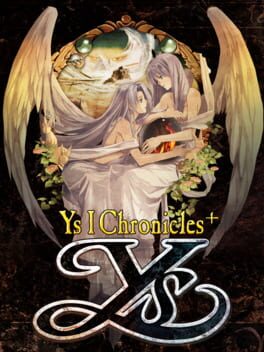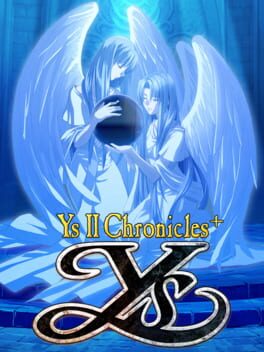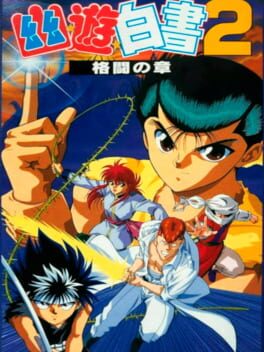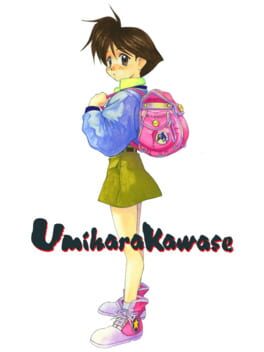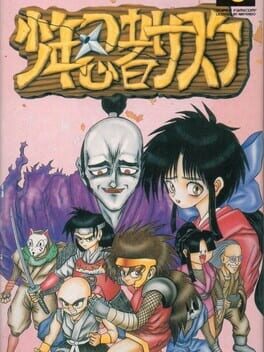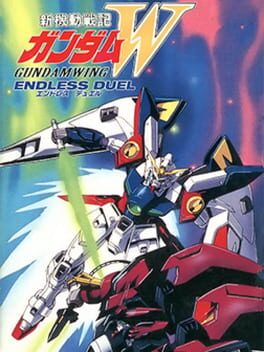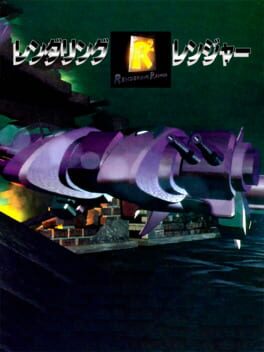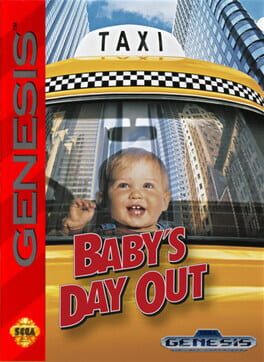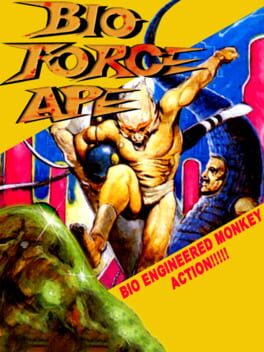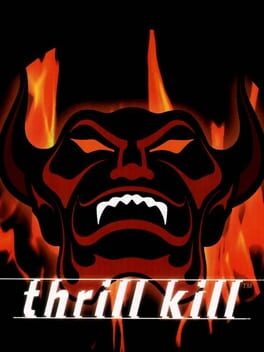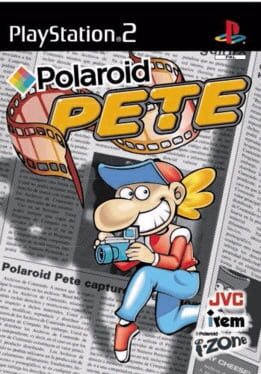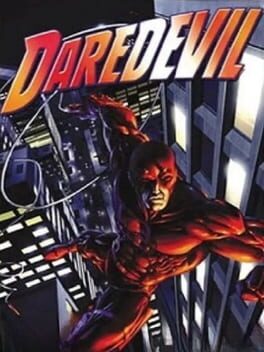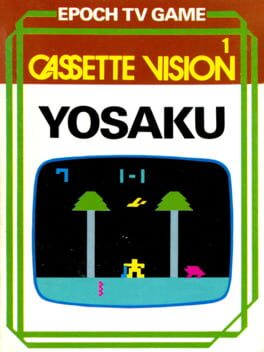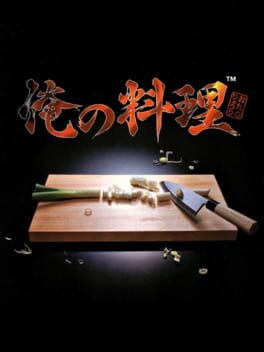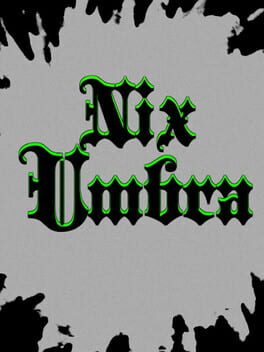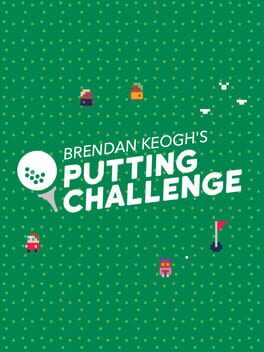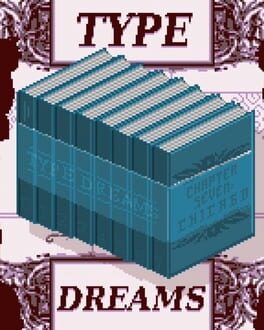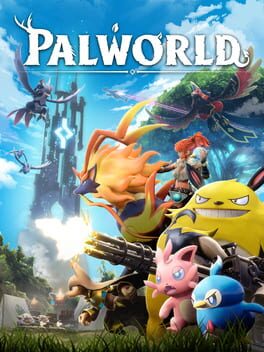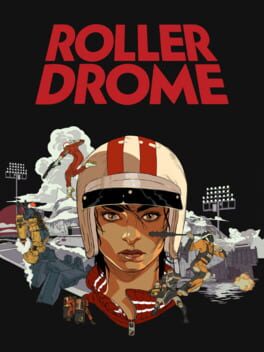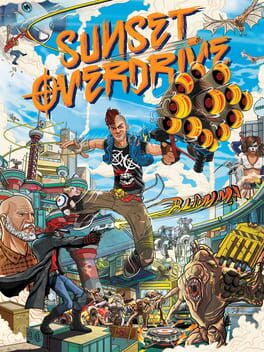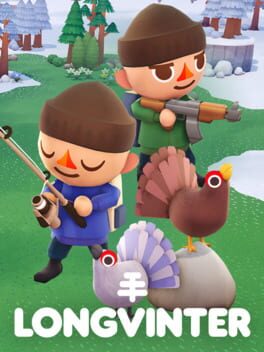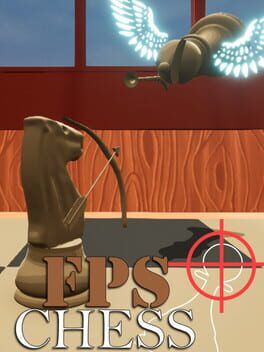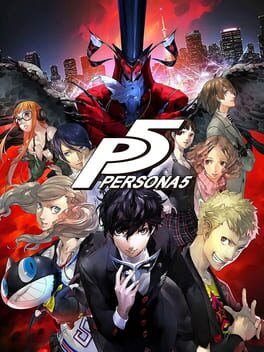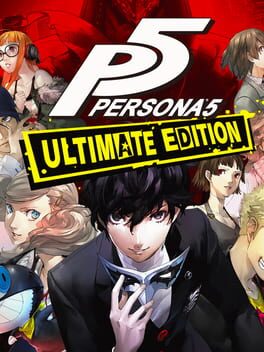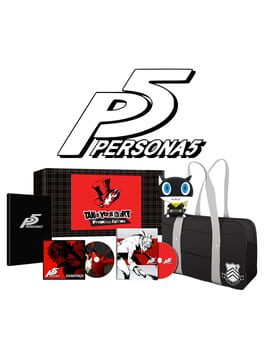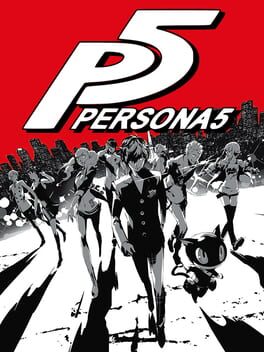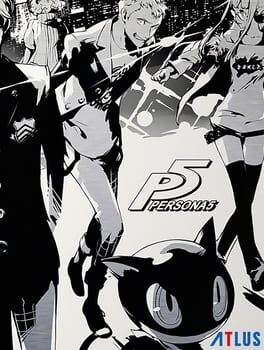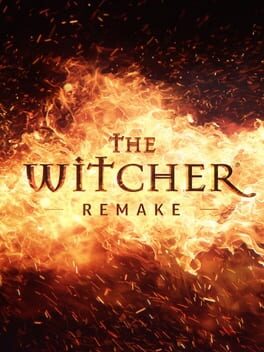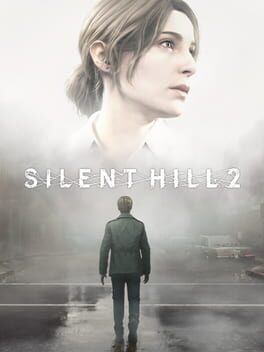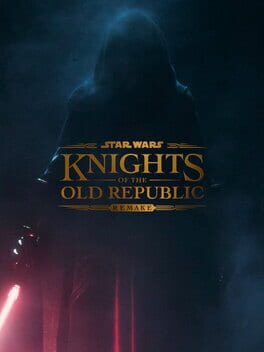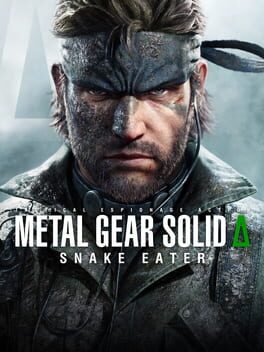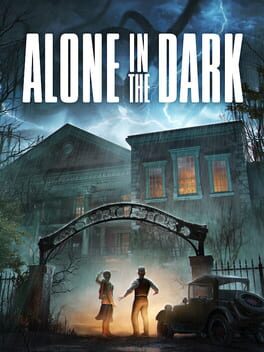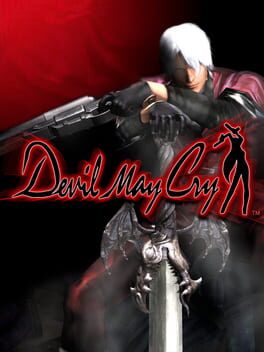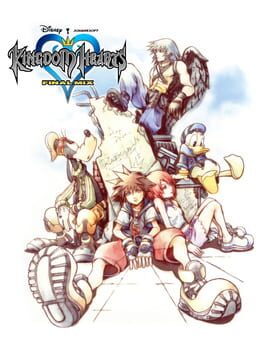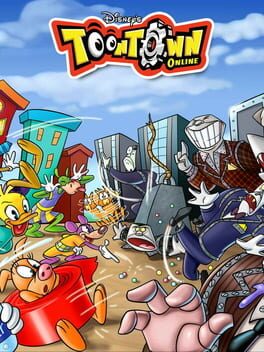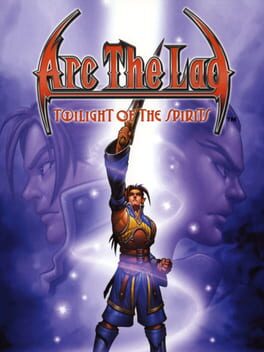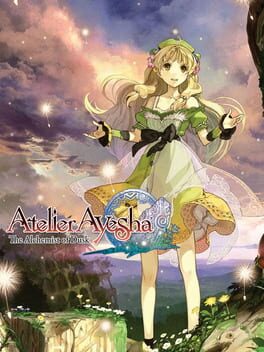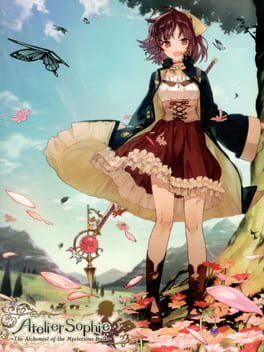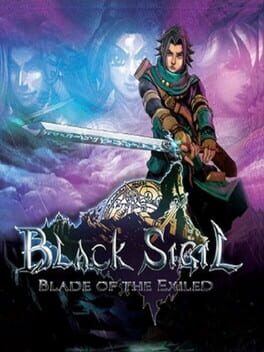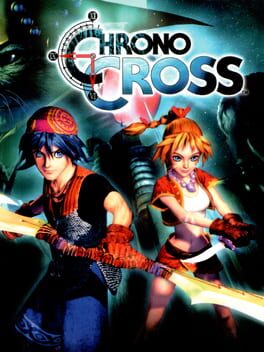belleshade
BACKER
476 reviews liked by belleshade
YES the third person shooting is kinda mid and YES the later levels get some pretty mean design choices that almost force you into grinding earlier levels for xp and gil and YES the first three-quarters of the game have very little meaningful or interesting story and YES everything with Omega and the Protomateria raises a lot of Big Lore questions about things going on in FF7.
BUT.
That last bit of the game! The last, like, three levels or something! It's all kinda sick as hell! The Rosso and Azul boss fights are just so damn cool. And basically everything once you get to the Weiss fight?? It's all anime bullshit and I love it. Vincent is great. What a cool guy. Yuffie is fun to have around sometimes! The little bit of Cloud/Tifa/Barret you get rules! Reeve sucks! And I guess Cid is there, too!
And I think the choice at the end of each level to convert your points into either XP or Gil is genuinely cool! And having your RPG stats to level up helps set this apart from the majority of shooters, which is neat!
I think I'm going to be rotating Rosso the Crimson in my mind for a long time.
If you don't like the edgy goth twink game then, I dunno, try letting joy into your heart or something.
BUT.
That last bit of the game! The last, like, three levels or something! It's all kinda sick as hell! The Rosso and Azul boss fights are just so damn cool. And basically everything once you get to the Weiss fight?? It's all anime bullshit and I love it. Vincent is great. What a cool guy. Yuffie is fun to have around sometimes! The little bit of Cloud/Tifa/Barret you get rules! Reeve sucks! And I guess Cid is there, too!
And I think the choice at the end of each level to convert your points into either XP or Gil is genuinely cool! And having your RPG stats to level up helps set this apart from the majority of shooters, which is neat!
I think I'm going to be rotating Rosso the Crimson in my mind for a long time.
If you don't like the edgy goth twink game then, I dunno, try letting joy into your heart or something.
Magic: The Gathering
1997
I decided to get into MtG via this game but telling my friends who actually play it "so yeah, you're given a randomized deck that is about 50% your chosen color and 50% another color, it's all late 90s cards, and wait, you're telling me you're supposed to be able to redraw if you don't have any lands?" seems to make them immediately profess their sympathies to me instead of selling them on it. Greatest character creator of all time.
Ghostpia Season One
2023
“Being touched makes me feel safe. But at the same time it also makes me anxious. After all, I have no idea how I could ever repay someone who makes me feel this happy. I can’t find the words to say. With just a simple hug, all of these feelings are revolving around inside me, and I’m just so afraid that I’ll end up crushing this moment into dust. And just like that, the happiness has faded away completely, leaving nothing but coarse anxiety coursing through my heart. Am I just not used to dealing with kindness?”
“Maybe I’m a little lonely.”
Okay now were those quotes from Sayoko, the protagonist of the video game Ghostpia after the first time someone was nice to her in so long that she can’t remember the last time she physically touched anyone, or was that a quote from Ina, the me who’s writing this little thing about the video game Ghostpia four months into an acute mental health episode that my doctor recently described as “really concerning”?
Jkjk obvi these are quotes from the first few minutes of Ghostpia but I did find myself struck throughout the ten or so hours I spent with the game just how well it captured with words the vibe of Being Depressed, which I do think is really hard to do in the format that developer Chosuido has chosen for this story. Being a visual novel with absolutely no player input beyond proceeding the text and which never leaves Sayoko’s perspective means you’re really sitting in the sludge with her, and while she’s a really engaging character, she’s often a difficult one to be around. Unmotivated, sad, and anxious, she actively avoids her friends in the early goings of the story, and even by the end of the game she is still largely nonverbal in group settings. But a combination of incredible scene direction, one of the most clever localizations I think I’ve ever seen, and a really lovely score help bolster an already very strong character voice. I think it’s a lot easier to communicate a VIBE of depression than having to constantly assert the fog of it with a running first person narration, but Chosuido makes it look easy.
“Hopefully I’m not so empty that the wind blows me away.”
Ghostpia takes place in a city surrounded on all sides by a vast desert of snow, populated by immortal people who live nocturnally and whose forms are painfully melted by the light of day. If they’re ever caught by the sun or otherwise killed, they simply reform and wake up within a couple days at the local garbage dump, which also happens to all inanimate objects in the town upon damage or consumption. The population is small and fixed – no one has ever been able to leave, and no outsider has ever shown up. There’s a fascist church that nominally runs the town but given that it’s difficult to cause any permanent harm to anyone or anything, even stuff as extreme as murder or arson seems to kind of slide out of consequence if the perpetrator gets away with it for more than a day or two.
Lots of things “happen” in this game and lots of things “have happened” over the course of ghostpia’s five episodes. It becomes evident pretty quickly that the literal only thing Sayoko is good at in life (death?) is killing people, with guns, with her hands. She’s amnesiac and the church seems to have a vested interest in her not remembering the circumstances around the last time she and her only two friends last tried to permanently escape the town. She gets to know professional worlds both legitimate and criminal. Schemes are hatched, assassinations plotted, battles beyond the scale you might expect are waged. None of this really coalesces into much of anything though. There’s a lot of worldbuilding, and it’s all interesting. There’s a lot of teasing, a lot of implication, hints that there is a coherent vision of What’s Going On here, but Ghostpia is firmly Season One of a planned two seasons and the core of this game is obviously an emotional one, uninterested in answering literally any of the questions it opens up.
“She’s so dazzling, I can’t help but look down at the floor to avert my gaze. She and I are different. The two of us are actually quite distant from each other, but only just so happen to be physically close right now. Just thinking about it like that makes me want to cry.”
The throughline that ties the season together is the arrival of the town’s first ever New Person in, well, no one is sure. Nobody keeps time, they don’t age, they don’t measure things, there’s no real point. All the days are the same, and over time it becomes evident that the milieu that consumes Sayoko enough that she rarely leaves home and doesn’t bathe or eat without instruction is silently haunting everyone. Everyone’s going through their motions, and the thing that makes her different is that she doesn’t have any motions to go through. The ghosts don’t technically have physical needs, so doing things like eating and bathing and staying warm are comforting rituals they keep going to make themselves feel like they’re retaining what they guess to be their essential human nature. Performing humanness is to some degree an essential part of a ghost’s life, and it’s ambiguous how seriously we’re meant to take it when early on one of Sayoko’s friends says they haven’t really hung out with her for several years.
So when a new girl shows up, immediately on the church’s bad side, and Sayoko rescues her, and gives her a name, and a place to crash for a while, well, it becomes immediately harder to be isolated. So as much of the game is taken up by the intrigue of the new girl, Yoru’s, situation, and by association the aspects of the lives of Sayoko’s other friends that she had either forgotten or never taken enough of an interest in before to learn about, the core of the experience is really just hanging out. Conversation. Establishing and re-establishing bonds. Learning to be vulnerable, and getting to know someone well enough that you can be vulnerable with them without being open with them.
“I don’t understand why you believe in her so much.”
“She doesn’t know what it means to love someone. She’s only ever been loved...That’s all she lives for...I find myself unpleasant. I know my mind is warped and repulsive. But I want to keep doing what I’m doing as long as I can.”
“I don’t understand you. But I might be jealous.”
It’s very easy for me to focus on the bits of Ghostpia that I connected with, because they resonate very strongly with me and I think when the game is on it’s so fucking on. I find the main cast pretty uniformly incredible – there’s Pacifica, who is tall and kind and shrewd and confident and ambiguously evil (no one is QUITE sure what her job is but “criminal kingpin” seems not implausible); Anya is handy and moody and warm and deeply invested once she opens up, which comes easier than she suggests it does; Yoru is bubbly and crude and perceptive and unreadable. Sayoko herself, when she starts to feel safe again, never stops being awkward but it does seem like she is kind of just Like That in a way that is flavored differently from the way people clam up when they’re anxious, she’s also a little bit genuinely cruel and deeply empathetic.
Each episode ultimately revolves around Sayoko’s ability to connect with one of her circle of friends or otherwise deeply relate with a side character, often ones who are hostile and cruel. Everywhere she goes she finds mirrors of her loneliness, her fear of vulnerability, her anger, and her aching want for the relationships she thinks other people have. And while this isn’t a game about “getting over it” or otherwise shrugging off depression, through those mirrors Sayoko is able to find a version of herself who is comfortable and able to believe that the people around her want to be there, and believe that when they tell her they feel about her the same way she feels about them, they’re being genuine.
“YOU JUST DON’T VIBE WITH HER.”
That shit isn’t the totality of the game though. Ghostpia is a lot of things, including, often, zanier than I would prefer? Not that I dislike jokes, and I do in fact like a lot of the comedy here, but there’s a juvenile streak that feels really out of place with the rest of it. A strange fascination with the word “poop” that spans the entire game, a mean-spirited running bit aimed at a homeless man that thankfully disappears relatively early on, and a bunch of out of left field otaku goofs at the eleventh hour stand out the loudest in my memory as Goofers that just don’t hit, but Ghostpia’s wacky diversions fall flat for me as often as they hit. If the characters and their dialogue weren’t so compelling through pretty much any scenario they get pitched into this stuff would be way more of a problem for me structurally.
This extends to action and violence too. The game is outright gruesome, and I think it’s to the writers’ credit that when they choose to play that gruesomeness for drama or horror it works really well even though characters are constantly reminding us and each other that death has literally no meaning for them and in fact would often get them out of the pickles they find themselves in. But probably 85% of the time the violence (which is usually like, A Lot, is what I want to emphasize) is played for comedy by the narrative even if Sayoko is taking herself seriously – the people of the town call her The Ninja because she jumps around and is so good at murder, and whenever she’s about to get into something there’s a cartoonish Ninja Flute Musical Cue to herald the coming bloodshed. Characters are bisected, mutilated, impaled, sometimes graphically, almost always for The Bit and I’m not OPPOSED to that sort of thing (I’m a documented sicko and in fact with one character who is the most consistent target of this to the point that it’s a running joke I think it’s pretty funny), I just don’t really get what we’re going for with the tone a lot of the time here. The weirdest bits are when the stakes of the genuine character drama are tied up in this cartoonish violence that otherwise comes off as a really dumb bit. The main plot of one episode revolved around one of the main characters being abused by her employer but the circumstances of this abuse are so brazenly stupid that it’s hard to feel the way I assume the developer wants me to feel about the scene. Nothing really offensive happening, it just feels a little at odds with what feels like the game at its best in multiple other directions.
“I don’t really wanna say something like ‘that’s the power of friendship’ because that’d be so cheesy. So I say it ironically. As a joke.”
Obviously, though, I HAVE connected pretty strongly with Ghostpia. I don’t think of those things I was just complaining about. I think about Sayoko’s endlessly evocative narration, and the soundtrack when it’s jaunty and the soundtrack when it’s melancholic. I think of the way all of the main characters are united in their hatred for Clara, the local nun in training who is so genuinely cheerful and naive that our misfit losers can’t help but be intrinsically disgusted by her mere presence.
I think of how, in chapter one, when she’s reconciling with Anya after going no contact over a slight she can’t even remember anymore, Sayoko says I’m sorry, I’m sorry, and Anya tells her “you don’t have to say it twice.” And then I think about how, at the end of the game, when Yoru is at her lowest and she’s testing the boundaries of the shaky relationship she’s developed with Sayoko, and she’s admitting to her that she knows more about everything and everyone than she lets on but that she can’t say any of it, and needs to know whether Sayoko could understand this, whether she’ll stay with her, Sayoko says “Of course I do. Of course,” and Yoru replies “I get it. You don’t have to say it twice.” I think about stagnancy, and transformation, and how to be content. Those things seem bigger in hindsight. I think Sayoko might agree.
“Maybe I’m a little lonely.”
Okay now were those quotes from Sayoko, the protagonist of the video game Ghostpia after the first time someone was nice to her in so long that she can’t remember the last time she physically touched anyone, or was that a quote from Ina, the me who’s writing this little thing about the video game Ghostpia four months into an acute mental health episode that my doctor recently described as “really concerning”?
Jkjk obvi these are quotes from the first few minutes of Ghostpia but I did find myself struck throughout the ten or so hours I spent with the game just how well it captured with words the vibe of Being Depressed, which I do think is really hard to do in the format that developer Chosuido has chosen for this story. Being a visual novel with absolutely no player input beyond proceeding the text and which never leaves Sayoko’s perspective means you’re really sitting in the sludge with her, and while she’s a really engaging character, she’s often a difficult one to be around. Unmotivated, sad, and anxious, she actively avoids her friends in the early goings of the story, and even by the end of the game she is still largely nonverbal in group settings. But a combination of incredible scene direction, one of the most clever localizations I think I’ve ever seen, and a really lovely score help bolster an already very strong character voice. I think it’s a lot easier to communicate a VIBE of depression than having to constantly assert the fog of it with a running first person narration, but Chosuido makes it look easy.
“Hopefully I’m not so empty that the wind blows me away.”
Ghostpia takes place in a city surrounded on all sides by a vast desert of snow, populated by immortal people who live nocturnally and whose forms are painfully melted by the light of day. If they’re ever caught by the sun or otherwise killed, they simply reform and wake up within a couple days at the local garbage dump, which also happens to all inanimate objects in the town upon damage or consumption. The population is small and fixed – no one has ever been able to leave, and no outsider has ever shown up. There’s a fascist church that nominally runs the town but given that it’s difficult to cause any permanent harm to anyone or anything, even stuff as extreme as murder or arson seems to kind of slide out of consequence if the perpetrator gets away with it for more than a day or two.
Lots of things “happen” in this game and lots of things “have happened” over the course of ghostpia’s five episodes. It becomes evident pretty quickly that the literal only thing Sayoko is good at in life (death?) is killing people, with guns, with her hands. She’s amnesiac and the church seems to have a vested interest in her not remembering the circumstances around the last time she and her only two friends last tried to permanently escape the town. She gets to know professional worlds both legitimate and criminal. Schemes are hatched, assassinations plotted, battles beyond the scale you might expect are waged. None of this really coalesces into much of anything though. There’s a lot of worldbuilding, and it’s all interesting. There’s a lot of teasing, a lot of implication, hints that there is a coherent vision of What’s Going On here, but Ghostpia is firmly Season One of a planned two seasons and the core of this game is obviously an emotional one, uninterested in answering literally any of the questions it opens up.
“She’s so dazzling, I can’t help but look down at the floor to avert my gaze. She and I are different. The two of us are actually quite distant from each other, but only just so happen to be physically close right now. Just thinking about it like that makes me want to cry.”
The throughline that ties the season together is the arrival of the town’s first ever New Person in, well, no one is sure. Nobody keeps time, they don’t age, they don’t measure things, there’s no real point. All the days are the same, and over time it becomes evident that the milieu that consumes Sayoko enough that she rarely leaves home and doesn’t bathe or eat without instruction is silently haunting everyone. Everyone’s going through their motions, and the thing that makes her different is that she doesn’t have any motions to go through. The ghosts don’t technically have physical needs, so doing things like eating and bathing and staying warm are comforting rituals they keep going to make themselves feel like they’re retaining what they guess to be their essential human nature. Performing humanness is to some degree an essential part of a ghost’s life, and it’s ambiguous how seriously we’re meant to take it when early on one of Sayoko’s friends says they haven’t really hung out with her for several years.
So when a new girl shows up, immediately on the church’s bad side, and Sayoko rescues her, and gives her a name, and a place to crash for a while, well, it becomes immediately harder to be isolated. So as much of the game is taken up by the intrigue of the new girl, Yoru’s, situation, and by association the aspects of the lives of Sayoko’s other friends that she had either forgotten or never taken enough of an interest in before to learn about, the core of the experience is really just hanging out. Conversation. Establishing and re-establishing bonds. Learning to be vulnerable, and getting to know someone well enough that you can be vulnerable with them without being open with them.
“I don’t understand why you believe in her so much.”
“She doesn’t know what it means to love someone. She’s only ever been loved...That’s all she lives for...I find myself unpleasant. I know my mind is warped and repulsive. But I want to keep doing what I’m doing as long as I can.”
“I don’t understand you. But I might be jealous.”
It’s very easy for me to focus on the bits of Ghostpia that I connected with, because they resonate very strongly with me and I think when the game is on it’s so fucking on. I find the main cast pretty uniformly incredible – there’s Pacifica, who is tall and kind and shrewd and confident and ambiguously evil (no one is QUITE sure what her job is but “criminal kingpin” seems not implausible); Anya is handy and moody and warm and deeply invested once she opens up, which comes easier than she suggests it does; Yoru is bubbly and crude and perceptive and unreadable. Sayoko herself, when she starts to feel safe again, never stops being awkward but it does seem like she is kind of just Like That in a way that is flavored differently from the way people clam up when they’re anxious, she’s also a little bit genuinely cruel and deeply empathetic.
Each episode ultimately revolves around Sayoko’s ability to connect with one of her circle of friends or otherwise deeply relate with a side character, often ones who are hostile and cruel. Everywhere she goes she finds mirrors of her loneliness, her fear of vulnerability, her anger, and her aching want for the relationships she thinks other people have. And while this isn’t a game about “getting over it” or otherwise shrugging off depression, through those mirrors Sayoko is able to find a version of herself who is comfortable and able to believe that the people around her want to be there, and believe that when they tell her they feel about her the same way she feels about them, they’re being genuine.
“YOU JUST DON’T VIBE WITH HER.”
That shit isn’t the totality of the game though. Ghostpia is a lot of things, including, often, zanier than I would prefer? Not that I dislike jokes, and I do in fact like a lot of the comedy here, but there’s a juvenile streak that feels really out of place with the rest of it. A strange fascination with the word “poop” that spans the entire game, a mean-spirited running bit aimed at a homeless man that thankfully disappears relatively early on, and a bunch of out of left field otaku goofs at the eleventh hour stand out the loudest in my memory as Goofers that just don’t hit, but Ghostpia’s wacky diversions fall flat for me as often as they hit. If the characters and their dialogue weren’t so compelling through pretty much any scenario they get pitched into this stuff would be way more of a problem for me structurally.
This extends to action and violence too. The game is outright gruesome, and I think it’s to the writers’ credit that when they choose to play that gruesomeness for drama or horror it works really well even though characters are constantly reminding us and each other that death has literally no meaning for them and in fact would often get them out of the pickles they find themselves in. But probably 85% of the time the violence (which is usually like, A Lot, is what I want to emphasize) is played for comedy by the narrative even if Sayoko is taking herself seriously – the people of the town call her The Ninja because she jumps around and is so good at murder, and whenever she’s about to get into something there’s a cartoonish Ninja Flute Musical Cue to herald the coming bloodshed. Characters are bisected, mutilated, impaled, sometimes graphically, almost always for The Bit and I’m not OPPOSED to that sort of thing (I’m a documented sicko and in fact with one character who is the most consistent target of this to the point that it’s a running joke I think it’s pretty funny), I just don’t really get what we’re going for with the tone a lot of the time here. The weirdest bits are when the stakes of the genuine character drama are tied up in this cartoonish violence that otherwise comes off as a really dumb bit. The main plot of one episode revolved around one of the main characters being abused by her employer but the circumstances of this abuse are so brazenly stupid that it’s hard to feel the way I assume the developer wants me to feel about the scene. Nothing really offensive happening, it just feels a little at odds with what feels like the game at its best in multiple other directions.
“I don’t really wanna say something like ‘that’s the power of friendship’ because that’d be so cheesy. So I say it ironically. As a joke.”
Obviously, though, I HAVE connected pretty strongly with Ghostpia. I don’t think of those things I was just complaining about. I think about Sayoko’s endlessly evocative narration, and the soundtrack when it’s jaunty and the soundtrack when it’s melancholic. I think of the way all of the main characters are united in their hatred for Clara, the local nun in training who is so genuinely cheerful and naive that our misfit losers can’t help but be intrinsically disgusted by her mere presence.
I think of how, in chapter one, when she’s reconciling with Anya after going no contact over a slight she can’t even remember anymore, Sayoko says I’m sorry, I’m sorry, and Anya tells her “you don’t have to say it twice.” And then I think about how, at the end of the game, when Yoru is at her lowest and she’s testing the boundaries of the shaky relationship she’s developed with Sayoko, and she’s admitting to her that she knows more about everything and everyone than she lets on but that she can’t say any of it, and needs to know whether Sayoko could understand this, whether she’ll stay with her, Sayoko says “Of course I do. Of course,” and Yoru replies “I get it. You don’t have to say it twice.” I think about stagnancy, and transformation, and how to be content. Those things seem bigger in hindsight. I think Sayoko might agree.
I honestly could say a whole lot of shit about Kingdom Hearts as a series but especially the first game. I've been playing KH1 very specifically pretty much since the original game released back in 2002. I have so many fond memories, so many hours spent wandering the levels, getting acquainted with the worlds and their gimmicks, platforming and ideas.
There's something tangibly there in KH1 that really doesn't particularly permeate the rest of the series. Like yeah, the combat mechanics absolutely improve, the series finds its identity in a lot of differing ways but there's something about the raw experimental edge and janky nature of this first entry that really isn't felt in the rest of the games.
The atmosphere here is almost uncannily eerie at points, especially in locations like Destiny Islands, Traverse Town, Hollow Bastion and End of the World. A kind of unsettling hint of darkness that unsettled me more as a kid (that Ansem in the cave scene genuinely scared the fuck out of me as a child I hated that shit lmao I always used to think that dude was like hiding in my closet about to call me a stupid bozo who didn't know anything) but some of the visuals, haunting gothic styled architecture and offness isn't felt to me in a number of later entries like it is here. Like some games do get closer to it again (0.2 is MAYBE the closest in years with 1 section in 3 getting a little closer too) but it's not really to the same level and degree that I feel this game really nails.
Like I adore the implications with stuff like the secret boss cutscene being really fuckin creepy and weird and off! The game is full of moments and ideas like that, the false Destiny Island in the end with the dead palm tree and no waterfall, the secret experiment room you uncover, all of Hollow Bastion and its gothic tones. It's so fuckin cool!
I like how this game integrates the Disney worlds with the actual overarching plot generally rather than just being flat out recaps most of the time (Atlantica having King Trident know what's up and shit talk the MC's is genuinely fantastic), I dig how this lays the groundwork for the rest of the series to build its world and concepts and ideas off of (even if they don't always work out the best in some of them DDD I'm looking at you).
I dig the gameplay systems and what they were going for with magic being more of a resource you have to build and manage, encouraging you to be more aggressive in order to build it back up. Though I do wish that being a purely magic focused build/character was a little more doable but whatever. Final Mix does add good additions like a camera that makes some goddamn sense and having Triangle be for opening chests and stuff like some of the moves you unlock like Sonic Blade and stuff to more reflect games like 2 and what they were going for more there. Though a Final Mix change I don't particularly enjoy is the color changes to the Heartless, I think the way its handled takes away from a l o t of the atmosphere and art direction of this game specifically and some just aren't good recolors like LOOK AT THIS
Potential hot take as well maybe possibly or maybe I have 2002 brain worms but honestly I really love the platforming in this game. I love how much they kinda messed around with it and while a bit slippery at points felt like something that could've been built upon or made a bit more interesting to do! Maybe made more interesting challenges or anything with it but I feel the series kinda just gives up on that aspect after this and that's kind of a shame. I really find it fascinating how much of that identity and idea permeates a loooot of this first game and how immediately 2 does away with pretty much the rest of that, with some lightly coming back in bits and pieces as apart of fights and some light exploration but otherwise nowhere near the same degree as explored in 1. I feel like that does make 1 stand out a little more in the kind of shit they were throwing at the wall to try out and everything too, same with the colored health bars idea that I honestly really fucked with!
Also something specific with this HD edition is I think some of the music is slightly just a little worse than the original. Like the original Night of Fate has a particular intensity to it that STILL to this day gives me fuckin goosebumps. The new version of Night of Fate does NOT hit in the same way at ALL. Something about it feels almost dulled? Like parts of it just aren't mixed how they originally were and I think it massively dulls the impact and effect of the track. Multiple songs in this version are like this and its kind of a bummer that there's still no kind of option like in the later releases of the Final Fantasy X/X-2 HD Remaster that let you choose the OG OST if you prefer that. I know the remaster process for this was a bit of a mess due to supposedly all of the original assets being lost and having to essentially remake it all from scratch but I feel like the music out of all of it would've been the easiest to reimplement. But maybe they didn't have the original files of the tracks or something like that who the fuck knows. It's a bummer to me either way!
Overall though, this game will always stick with me, I will pretty much come back to this game forever for the rest of eternity. I could completely burn out of this series or hate some entry or whatever and still be all into playing KH1 all over again because it's so utterly special to me. I could go on and on about little strats for fights or what worlds can be completely skipped or how to get through world's quickly or fun facts about certain inclusions and ideas within the game itself. It's a personal heartfelt favorite that makes me feel a lot of things and I absolutely can talk about to absolute fuckin death man.
Kingdom Hearts opened my mind to the possibilities of what video games could be. More than just the Mortal Kombat 2's and Super Mario 3's of the world. It was the first game to really get me into its narrative, to really hook me and never really let me go. Even now I'm still invested in this series, its characters, its secrets, its fun goofy nature and its heartfelt messages and ideas. I love Kingdom Hearts for everything it is and while I wish certain elements of the series were carried forward in ways I am still happy overall with where things have gone since 2002.
There's something tangibly there in KH1 that really doesn't particularly permeate the rest of the series. Like yeah, the combat mechanics absolutely improve, the series finds its identity in a lot of differing ways but there's something about the raw experimental edge and janky nature of this first entry that really isn't felt in the rest of the games.
The atmosphere here is almost uncannily eerie at points, especially in locations like Destiny Islands, Traverse Town, Hollow Bastion and End of the World. A kind of unsettling hint of darkness that unsettled me more as a kid (that Ansem in the cave scene genuinely scared the fuck out of me as a child I hated that shit lmao I always used to think that dude was like hiding in my closet about to call me a stupid bozo who didn't know anything) but some of the visuals, haunting gothic styled architecture and offness isn't felt to me in a number of later entries like it is here. Like some games do get closer to it again (0.2 is MAYBE the closest in years with 1 section in 3 getting a little closer too) but it's not really to the same level and degree that I feel this game really nails.
Like I adore the implications with stuff like the secret boss cutscene being really fuckin creepy and weird and off! The game is full of moments and ideas like that, the false Destiny Island in the end with the dead palm tree and no waterfall, the secret experiment room you uncover, all of Hollow Bastion and its gothic tones. It's so fuckin cool!
I like how this game integrates the Disney worlds with the actual overarching plot generally rather than just being flat out recaps most of the time (Atlantica having King Trident know what's up and shit talk the MC's is genuinely fantastic), I dig how this lays the groundwork for the rest of the series to build its world and concepts and ideas off of (even if they don't always work out the best in some of them DDD I'm looking at you).
I dig the gameplay systems and what they were going for with magic being more of a resource you have to build and manage, encouraging you to be more aggressive in order to build it back up. Though I do wish that being a purely magic focused build/character was a little more doable but whatever. Final Mix does add good additions like a camera that makes some goddamn sense and having Triangle be for opening chests and stuff like some of the moves you unlock like Sonic Blade and stuff to more reflect games like 2 and what they were going for more there. Though a Final Mix change I don't particularly enjoy is the color changes to the Heartless, I think the way its handled takes away from a l o t of the atmosphere and art direction of this game specifically and some just aren't good recolors like LOOK AT THIS
Potential hot take as well maybe possibly or maybe I have 2002 brain worms but honestly I really love the platforming in this game. I love how much they kinda messed around with it and while a bit slippery at points felt like something that could've been built upon or made a bit more interesting to do! Maybe made more interesting challenges or anything with it but I feel the series kinda just gives up on that aspect after this and that's kind of a shame. I really find it fascinating how much of that identity and idea permeates a loooot of this first game and how immediately 2 does away with pretty much the rest of that, with some lightly coming back in bits and pieces as apart of fights and some light exploration but otherwise nowhere near the same degree as explored in 1. I feel like that does make 1 stand out a little more in the kind of shit they were throwing at the wall to try out and everything too, same with the colored health bars idea that I honestly really fucked with!
Also something specific with this HD edition is I think some of the music is slightly just a little worse than the original. Like the original Night of Fate has a particular intensity to it that STILL to this day gives me fuckin goosebumps. The new version of Night of Fate does NOT hit in the same way at ALL. Something about it feels almost dulled? Like parts of it just aren't mixed how they originally were and I think it massively dulls the impact and effect of the track. Multiple songs in this version are like this and its kind of a bummer that there's still no kind of option like in the later releases of the Final Fantasy X/X-2 HD Remaster that let you choose the OG OST if you prefer that. I know the remaster process for this was a bit of a mess due to supposedly all of the original assets being lost and having to essentially remake it all from scratch but I feel like the music out of all of it would've been the easiest to reimplement. But maybe they didn't have the original files of the tracks or something like that who the fuck knows. It's a bummer to me either way!
Overall though, this game will always stick with me, I will pretty much come back to this game forever for the rest of eternity. I could completely burn out of this series or hate some entry or whatever and still be all into playing KH1 all over again because it's so utterly special to me. I could go on and on about little strats for fights or what worlds can be completely skipped or how to get through world's quickly or fun facts about certain inclusions and ideas within the game itself. It's a personal heartfelt favorite that makes me feel a lot of things and I absolutely can talk about to absolute fuckin death man.
Kingdom Hearts opened my mind to the possibilities of what video games could be. More than just the Mortal Kombat 2's and Super Mario 3's of the world. It was the first game to really get me into its narrative, to really hook me and never really let me go. Even now I'm still invested in this series, its characters, its secrets, its fun goofy nature and its heartfelt messages and ideas. I love Kingdom Hearts for everything it is and while I wish certain elements of the series were carried forward in ways I am still happy overall with where things have gone since 2002.
NEET Girl Date Night
2022
Enduro
1983
Well, it's 1983 and you want a racing game to play at home with; this is one of the best you're going to get. It's no shock to anyone that going from arcade to a home system, graphics and certain QOL aspects are not going to be remotely comparable. Enduro isn't the closest graphically that you're going to find, Pole Position takes that award, but it is incredibly advanced for ways it plays with the gameplay over graphics. I'll be real, for a game on the Atari 2600, the amount of boundaries this game is able to push to include things like snowy mountaintop scenery, and fog where you're only able to see the car backlights, is kind of breathtaking. The ability it's able to convey perspective is pretty impressive too, and makes racing much more enjoyable being able to see yourself quickly approaching your opponent, learning how to balance timing and movement. Simple stuff now that is just genuinely mind-blowing it's on a home system made in 1977. Game controls and sounds really good too, with a plentiful of awesome, crisp Atari sound effects. Doesn't beat Pole Position though, which came out earlier on top of that, too - so I can't truly advise Enduro as the best Atari 2600 racing game out there, but it's still pretty damn good.
4/5
4/5
Having just completed the 350 point version of Colossal Cave Adventure, I am so curious what a 3D adaptation of that game even looks like. Parts of it seem impossible to adapt to a graphic adventure
I had a good time playing it! Parts of it were dated as you'd expect from someone making a text adventure basically in a bubble in 1977 since I don't think they were playing any other computer games at the time, but I was surprised at how well it holds up
I had a good time playing it! Parts of it were dated as you'd expect from someone making a text adventure basically in a bubble in 1977 since I don't think they were playing any other computer games at the time, but I was surprised at how well it holds up
While the PLATO RPGs of its time seek to replicate thr systems of Dungeons and Dragons, Colossal Cave Adventure seeks to preserve its humanity. It is a proto-Choose-Your-Own-Adventure book. It is a DnD one-shot wherein the DM is infinitely patient, but barely speaks your language. It is one of the most important video games ever made. Beside the adventure sits a parallel game... one of communication. Accept that relaying your intentions to this robot can be a fun challenge in itself, and find yourself enjoying two games at once.
Colossal Cave Adventure is, at least in my opinion, the first game that is actually about exploring a place. Not just mapping out a level, but searching its crannies and understanding its inner workings. As you can imagine, some of the puzzles in Colossal Cave Adventure are stupid. There are a great number of passageways that only SOMETIMES randomly work, and the "solution" is literally just to try them over and over. In this original text adventure, that means typing a command over and over, not just holding down a button to walk in a direction.
Despite the clunk, this is an admirable first outing with many interesting little twists and turns, and if a slow-paced, dry-witty, more-exploratory, historically-essential version of Kirby Superstar's Great Cave Offensive sounds interesting to you, I'd say you'll probably have a good time!
But I'd also say that you should definitely play the 2023 graphical remake Colossal Cave over the original though, because we live in a society.
Colossal Cave Adventure is, at least in my opinion, the first game that is actually about exploring a place. Not just mapping out a level, but searching its crannies and understanding its inner workings. As you can imagine, some of the puzzles in Colossal Cave Adventure are stupid. There are a great number of passageways that only SOMETIMES randomly work, and the "solution" is literally just to try them over and over. In this original text adventure, that means typing a command over and over, not just holding down a button to walk in a direction.
Despite the clunk, this is an admirable first outing with many interesting little twists and turns, and if a slow-paced, dry-witty, more-exploratory, historically-essential version of Kirby Superstar's Great Cave Offensive sounds interesting to you, I'd say you'll probably have a good time!
But I'd also say that you should definitely play the 2023 graphical remake Colossal Cave over the original though, because we live in a society.
When XC3 was first announced, I though it would be exactly like this - I'm very glad that it wasn't!
Future Redeemed feels like one entire Xenoblade-game cramped into a DLC-sized package and is still somehow often redundant, not really knowing what to do with these old characters now that they're there except... doubling down on that really essentialist conception of the "way things should be" focused entirely on the nuclear family that already bothered me in the main game, with a more intense focus on "legacy" now thrown in the mix. Those themes are personified in Rex and Shulk and their children and although there is a charm to that personification that I won't deny, I'd still rather they just hadn't focused on those aspects of the main story. It's neat to see a few (more or less) familiar faces, but it was never more than that for me.
Standout star is again the world design and feel of traversing the world, I'm really amazed at the beautiful and engaging landscapes Monolithsoft is able of creating and I sometimes wished while playing that they had put more of their focus on that. The feeling of traversing worn-down Colony 9 was really great and kinda haunting at the same time and I hoped for more of these moments. Sadly, the exploration of the world is now confronted with morejubilant pop-up messages than ever. I get that you want your game to feel rewarding but I just stopped talking to people after I was met with the same screen-filling announcement that I had made a new bond with the person I just listened to talking about bread for four seconds. It's kinda tiring. There's also some unnecessary roadblocks thrown in to pad for time, but that's fine, it encouraged me to explore a lil' more.
The whole experience somehow left me really saturated, but not in an especially great way? Not in a necessarily bad way either, it just kinda came and went, had some nice moments, went some weird places thematically and arrived at kinda the same conclusion as all the games before XC3, but a little worse. Maybe it's just because 3 wrapped that whole thing up so nicely, but now I'm really fearful of the next Xenoblade game still beating that same old drum.
Future Redeemed feels like one entire Xenoblade-game cramped into a DLC-sized package and is still somehow often redundant, not really knowing what to do with these old characters now that they're there except... doubling down on that really essentialist conception of the "way things should be" focused entirely on the nuclear family that already bothered me in the main game, with a more intense focus on "legacy" now thrown in the mix. Those themes are personified in Rex and Shulk and their children and although there is a charm to that personification that I won't deny, I'd still rather they just hadn't focused on those aspects of the main story. It's neat to see a few (more or less) familiar faces, but it was never more than that for me.
Standout star is again the world design and feel of traversing the world, I'm really amazed at the beautiful and engaging landscapes Monolithsoft is able of creating and I sometimes wished while playing that they had put more of their focus on that. The feeling of traversing worn-down Colony 9 was really great and kinda haunting at the same time and I hoped for more of these moments. Sadly, the exploration of the world is now confronted with morejubilant pop-up messages than ever. I get that you want your game to feel rewarding but I just stopped talking to people after I was met with the same screen-filling announcement that I had made a new bond with the person I just listened to talking about bread for four seconds. It's kinda tiring. There's also some unnecessary roadblocks thrown in to pad for time, but that's fine, it encouraged me to explore a lil' more.
The whole experience somehow left me really saturated, but not in an especially great way? Not in a necessarily bad way either, it just kinda came and went, had some nice moments, went some weird places thematically and arrived at kinda the same conclusion as all the games before XC3, but a little worse. Maybe it's just because 3 wrapped that whole thing up so nicely, but now I'm really fearful of the next Xenoblade game still beating that same old drum.
106 lists liked by belleshade
by vcharts |
97 Games
by railgun233 |
17 Games
by Scaregoat |
30 Games
by PZT |
121 Games
by Detchibe |
25 Games
by Drax |
35 Games
by vehemently |
57 Games
by SwitSwat |
25 Games
